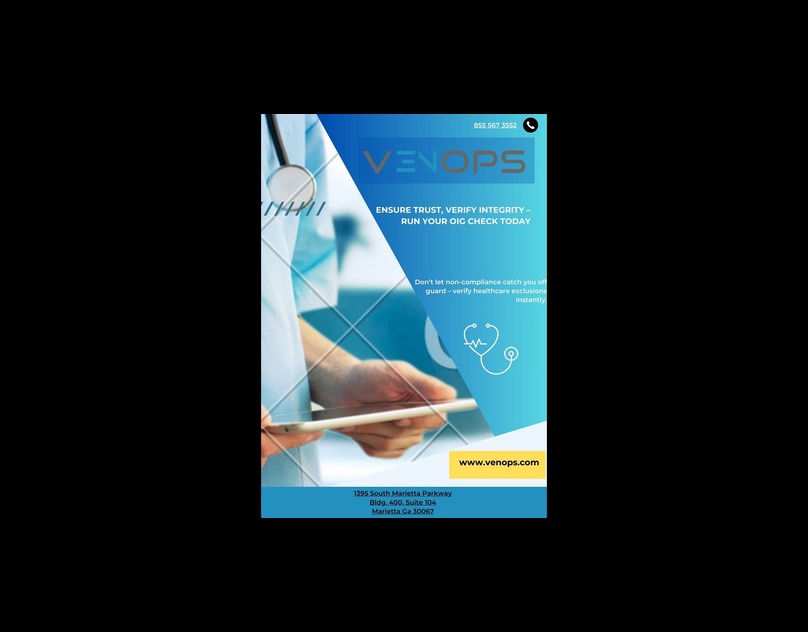The OIG Exclusion List helps to prevent fraud, waste, and abuse in the healthcare industry. The OIG Exclusion List is a list of persons and entities excluded from participating in a federally funded healthcare program like Medicare and Medicaid.
The exclusion list shows that any healthcare provider is not allowed to receive remuneration in any kind of federal healthcare program if listed in the exclusion list. Providers must regularly screen out OIG excluded parties with whom they may end up hiring or working within their organizations to avoid fines and lawsuits.
What Does It Mean to be OIG Excluded?
An exclusion is the prevention of allowing a person or an organization to participate in any federal health care program. This does not exclude direct involvement with the federal programs; however, business or employment that receives Medicare or Medicaid funds is prohibited. The reason for such exclusion states that it may comprise health care fraud, revocation of one’s license, or even other crimes pending regarding the last offense concerning health care.
The exclusion will ensure that the organization sticks by the law, away from expensive penalties, and keeps its integrity intact. Such violations can bring civil monetary penalties and the loss of federal funds.
How to Handle OIG Exclusion?
Suitable exclusion screening mechanisms should be in place to effectively block all OIG excluded individuals from healthcare organizations. The risk of making the wrong hiring decision and becoming entrapped in some serious issues can easily be avoided by regularly checking the OIG Exclusion List. Automated exclusion screening services reduce the possibility of non-compliance errors by ensuring timely checks and proper documentation. When an employee or contractor is discovered to be excluded, organizations should act promptly to adjust the status. Terminate or drop off any government healthcare program funds that an employee or contractor may hold a position.
OIG screening
OIG screening is a compliance action. That a healthcare provider or institution should take to continue complying with federal regulations on healthcare. Regular OIG screening helps reduce legal and financial risks against healthcare organizations.
Why is OIG screening important?
Failure to conduct routine screening by the OIG would make healthcare organizations extremely vulnerable to risks. The government enforces hard compliance regulations; contracts with individuals who are barred from dealing with the OIG would warrant heavy fines, repayment of federal funding, and possible exclusion from federal healthcare programs. Due to this, healthcare organizations need to make screening their priority to comply with the OIG protocol.
Association with excluded parties damages not only the standing of a facility within the healthcare community but also destroys trust with patients, partners, and stakeholders. OIG screening acts as a preventative measure against these risks.
The Best Practices for OIG Screening
An organization can search the list of excluded persons either online through the OIG or let someone screen for it. Automated services are helpful for large companies hiring and contracting often, as they allow the individual to be screened in one central location and maintain regular checks.
Best practice would entail OIG screening employees and contractors when hiring them into service. And further conducting regular checks on all employees with up-to-date screenings. Screening processes must also be documented, and records stored for a minimum period of five years in case they are needed for audits or investigations.
CMS Open Payments Data and Its Benefits
CMS Open Payments is a program that gathers data on the payment or any other kind of value accrued to a healthcare provider, and the details are eventually made public to ensure accountability. The CMS Open Payments Data is a record of data about payments, gifts, travel compensation, and other types of financial interaction between healthcare providers and manufacturers, administered by the Centers for Medicare & Medicaid Services. The program aims to encourage openness, explaining to the public how much and in what form the pharmaceutical and medical device industries pay the healthcare providers. This also makes the provider account for these relationships that might influence their judgment over a given course of treatment, thereby creating potential conflicts of interest.
Why is CMS Open Payments Data so Important?
Transparency can help ensure the trust held within the healthcare system. With CMS Open Payments data, any entity can understand the financial relations and make decisions easily. The following facts in consideration show that if a doctor receives huge amounts from a pharmaceutical company, then in that case, the treatments may be prescribed based on the needs of patients.
It also promotes greater accountability within the health sector. Providers are much more aware of financial transactions and how these transactions would appear when such information is published for public review. It further allows for oversight by regulation to ensure that appropriate standards of conduct apply in health care.
How to Use CMS Open Payments Data?
Patients can check out any healthcare provider using the CMS website. This information enables patients to ask more informed questions about their treatment and healthcare providers.
This information can help medical organizations and providers conform to industry norms. Providers can just create transparent records of their disclosures on finance. And ensure that financial relationships with companies do not interfere with the care offered.
The healthcare industry is filled with regulation, which is directed toward the promotion of transparency and ethical practice and consideration of federal standards. A large chunk of this regulatory architecture resides in the OIG Exclusion List, OIG screening, and CMS Open Payments data. Each of these addresses a separate concern—the building blocks of trust and accountability in health care. Regular OIG screening ensures compliance and avoids severe penalties for healthcare organizations.









